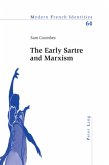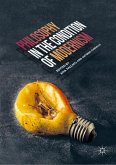This book provides a critical assessment of Benjamin's writings on Franz Kafka and of Benjamin's related writings. Eliciting from Benjamin's writings a conception of philosophy that is political in its dissociation from - its becoming renegade in relation to, its philosophic shame about - established laws, norms, and forms, the book compares Benjamin's writings with relevant works by Agamben, Heidegger, Levinas, and others. In relating Benjamin's writings on Kafka to Benjamin's writings on politics, the study delineates a philosophic impetus in literature and argues that this impetus has potential political consequences. Finally, the book is critical of Benjamin's messianism insofar as it is oriented by the anticipated elimination of exceptions and distractions. Exceptions and distractions are, the book argues, precisely what literature, like other arts, brings to the fore. Hence the philosophic, and the political, importance of literature.
Bitte wählen Sie Ihr Anliegen aus.
Rechnungen
Retourenschein anfordern
Bestellstatus
Storno








